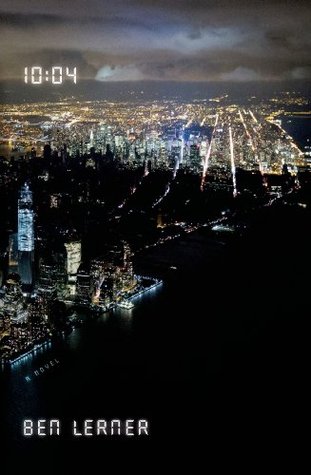More on this book
Community
Kindle Notes & Highlights
Everything will be as it is now, just a little different—
Because those moments had been enabled by a future that had never arrived, they could not be remembered from this future that, at and as the present, had obtained; they’d faded from the photograph.
If you want to pick out the devastated or soon-to-be-devastated from the stream of people leaving Mount Sinai, I decided, don’t look for frank expressions of sorrow or concern, look for people whose faces resemble those of passengers deplaning after a long flight—a blank expression as the body begins adjusting to a new time zone and ground speed.
From their respective present tenses, they all watched the same turbulent point.
That he would form no memory of what he observed and could not record it in any language lent it a fullness, made it briefly identical to itself, and he was deeply moved to think this experience of presence depended upon its obliteration.
“Why reproduce if you believe the world is ending?” “Because the world is always ending for each of us and if one begins to withdraw from the possibilities of experience, then no one would take any of the risks involved with love.
This way of thinking allowed one to deploy the vocabularies of sixties radicalism—ecological awareness, anticorporate agitation, etc.—in order to justify the reproduction of social inequality.
“It’s always a projection back into the past, the idea that there was a single moment when you decided to become a writer, or the idea that a writer is in a position to know how or why she became a writer, if it makes sense to think of it as a decision at all, but that’s why the question can be interesting, because it’s a way of asking a writer to write the fiction of her origins, of asking the poet to sing the song of the origins of song, which is one of the poet’s oldest tasks.
Let me allow the preposterousness of what I’m saying to sink in: I think I became a poet because of Ronald Reagan and Peggy Noonan. The way they used poetic language to integrate a terrible event and its image back into a framework of meaning, the way the transpersonality of prosody constituted a community: poets were the unacknowledged legislators of the world, it seemed to me.
If I had to trace my origins as a poet to a specific moment, I’d locate it there, in those modes of recycling.
nothing in the world, I thought to myself, is as old as what was futuristic in the past.
“I think of my audience as a second person plural on the perennial verge of existence,”
I remembered the red-eye effect in the photographs of my youth, the camera recording the light of its own flash, the camera inscribing itself in the image it captured.
Shaving is a way to start the workday by ritually not cutting your throat when you’ve the chance,
How many out-of-character things did I need to do, I wondered, before the world rearranged itself around me?
But then I realized that trying not to think about something is like thinking about something, know what I mean? It has the same shape. The shape of the thought fills up with the thing if you think it, or it empties if you try not to think it, but either way it’s the same shape.
I saw no spheres, but I loved the idea of them—the idea that our worldly light could be reflected back to us and mistaken as supernatural.
but why dismiss what misapprehension can establish,
Say that it was standing there that I decided to replace the book I’d proposed with the book you’re reading now, a work that, like a poem, is neither fiction nor nonfiction, but a flickering between them; I resolved to dilate my story not into a novel about literary fraudulence, about fabricating the past, but into an actual present alive with multiple futures.
Even when we think we are writing to one another we are not writing for one another and so incomprehension is probably a necessity.
Another historic storm had failed to arrive, as though we lived outside of history or were falling out of time.
there is that intimacy of parallel gazes I feel when we stand before a canvas or walk across a bridge.
I am looking back at the totaled city in the second person plural. I know it’s hard to understand / I am with you, and I know how it is.


